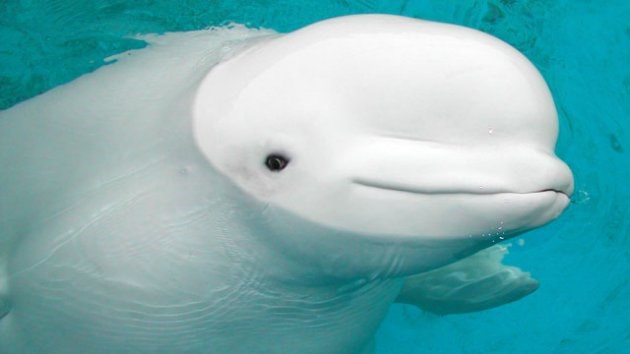Make no mistake: Whichever side of the debate you’re on, what happened last month at the Vancouver Aquarium was a tragedy. Its two remaining resident beluga whales died within nine days of each other. The first to pass was daughter Qila, aged 21; next was her mother, Aurora, aged 29.
An investigation has been launched into their sudden deaths, the Aquarium promising to leave “no stone unturned.” That includes the unlikely possibility that saboteurs somehow poisoned the whales. At press time, no conclusive evidence had been released, and the staff and caregivers continued to mourn the belugas for which they cared so deeply.
Many years ago, an interaction with Kavna (another Aquarium beluga, who died in 2012) was the inspiration behind Raffi’s multi-generational hit “Baby Beluga”:
Baby beluga in the deep blue sea / Swim so wild and you swim so free
Heaven above and the sea below / And a little white whale on the go
The painfully obvious irony in those lyrics is that Kavna – like Aurora – spent most of her life in captivity. Qila, meanwhile, was the first beluga to be born into a Canadian aquarium, never knowing what it was like to swim wild and free.
As recently as July, scientists and animal behaviour experts were warning that Qila was exhibiting signs of stress and boredom. She had been observed swimming one length of her tank upright, the other upside down, surfacing at the same place to breathe each time.
Lori Marino, a doctor from New York’s State University who has extensively studied brain-behaviour relationships in whales, told the Vancouver Sun that the Aquarium was “trying to convince you that this circling behaviour is normal. It is not. When you see this kind of repetitive behaviour, you know that the animal is not thriving.”
That same month, Aquarium veterinarian Marty Haulena told the Sun that Qila was a “very healthy” beluga, noting that her weight, appetite and X-rays were normal. Yet four months later, Qila was dead.
This double tragedy finds the Aquarium at a crucial crossroads. For years there have been plans in the works for a costly expansion of the beluga whale “habitat.” Until the cause of the whales’ death is confirmed, a possible silver lining is that those plans appear to be on hold.
What’s further troubling, however, is that the Aquarium is still actively involved in an international beluga-breeding program; it owns five whales that are currently “on loan” around the continent, as part of what Peter Hamilton of Vancouver’s Lifeforce Foundation has called a “cetacean slave trade.” That means it’s possible the Aquarium may proceed with its expansion, bringing some of the belugas back to Vancouver to fill the tanks. This is not the right decision.
If anything good comes out of the deaths of Aurora and Qila, let it be the end of beluga whales in captivity at the Aquarium, and the end of a sad and much-too-long chapter of Vancouver history.



